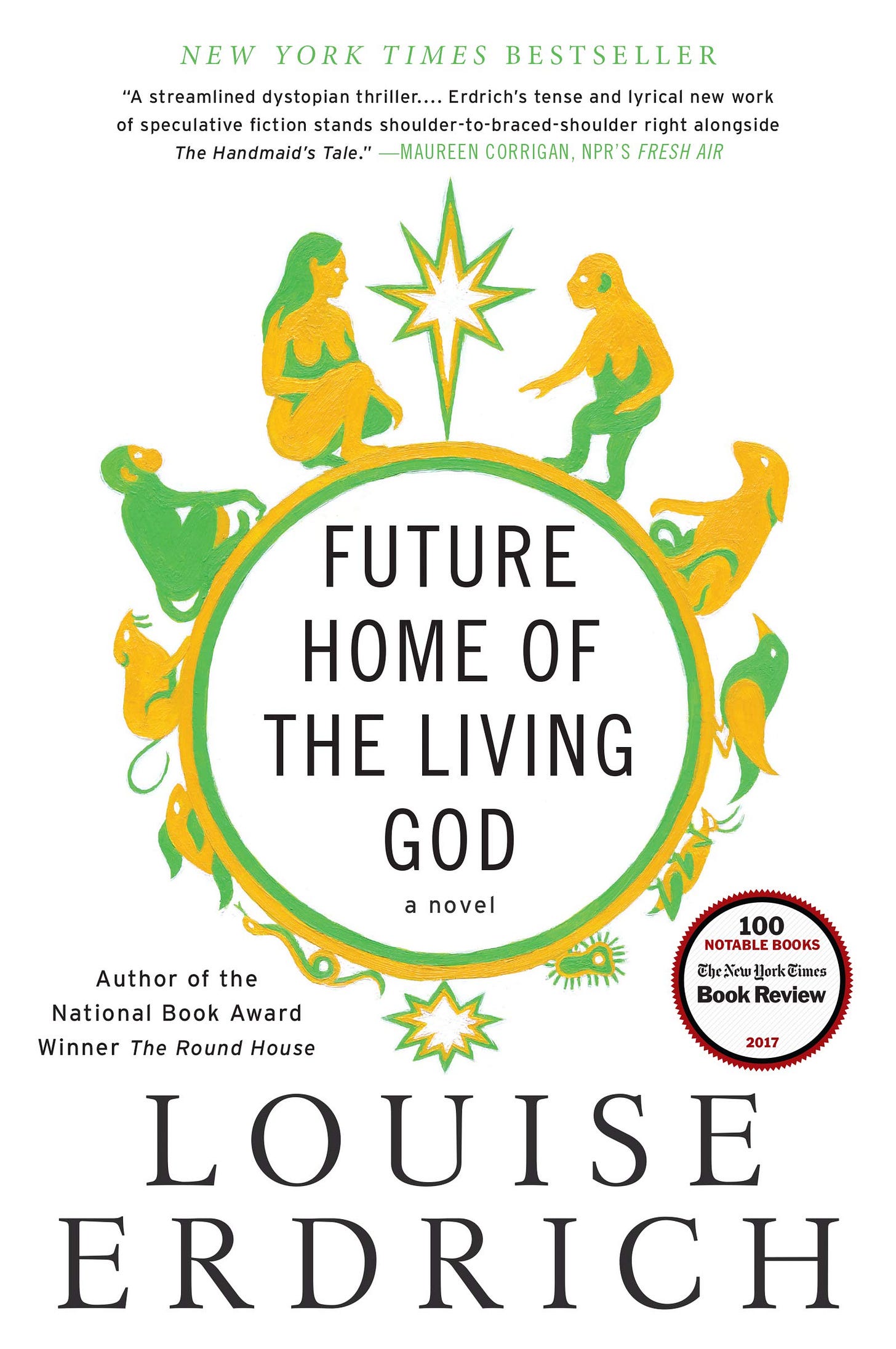I just finished reading the novel Future Home of the Living God by Louise Erdrich. She is an acclaimed author, including the 2021 Pulitzer Prize for Fiction for her novel The Night Watchman. She’s written twenty-some other books, but this is the first one of hers I’ve read. It’s OK. Probably not going to make the re-read list.
No significant spoilers synopsis
Something has happened to human reproduction, and the babies appear to be devolving to more primitive or prehistoric beings. That causes all of society to breakdown: the federal government is gone and replaced by a military force with significant surveillance capabilities; the monetary system is gone and you need commodities to barter with (cigarettes seem to be the most valuable); pregnant and potentially pregnant women are rounded up to control the strange births and to try to induce proper ones in a way reminiscent of The Handmaid’s Tale.
The main character is a Native American girl, Cedar Hawk Songmaker, who was adopted into a liberal white family in Minnesota. She becomes pregnant and is reunited with her birth family on a reservation. Most of the action involves her attempts to avoid detection and detention by the people with guns.
A couple thoughts on science and religion
Given the title of the book, I expected a bit more overt theological content. Cedar became Catholic during her teen years as an act of rebellion against her adoptive parents, who wanted her to be more authentically Native American. And early on we do get a couple of passages of reflection on the Incarnation as Cedar ponders bringing into existence a creature that is of her, but not quite the same as she is. But that’s about it.
Because of the line of work I’m in, I couldn’t help laughing a bit at the claim that the strange biological developments made Creationism go extinct. I guess you can create any world you want when you’re doing science fiction, but I’m afraid the Creationism of this world is more pliable than that. If it can survive the current evidence there is against it, I’m pretty sure it could survive the devolution of a species, or the discovery of aliens, or about anything else. It’s only the theories that tie themselves to empirical data that would be troubled by unexpected finds.
Lest you think, however, that I’m just bashing pseudoscience, tying one’s theories to empirical data is trickier than it seems. I’ve read my Thomas Kuhn. A theory is deeper down in the web of belief than the empirical findings — almost insulated from experience. And it has to be. Otherwise every time something interesting was observed, we’d have to pitch the theory. Instead, the interesting work on any scientific theory is grappling with what we don’t quite understand. And every theory has empirical anomalies that it accommodates to some degree, like so many epicycles added to save the theory. That doesn’t mean that all theories are equal, just that it’s more complicated that we’re sometimes led to believe.
One of the books toward the top of my stack is Idealization and the Aims of Science, which looks like it attempts to show some of that more complicated and nuanced view of science. I’d say that I’ll get to it next, but my reading stack also is fairly complicated and nuanced. There are anomalies there too that need epicycles to explain it as a system of reading. I’ll keep you posted.




Sounds like a super interesting premise-- fairly similar to Sweet Tooth, which I love! I'll have to check it out!